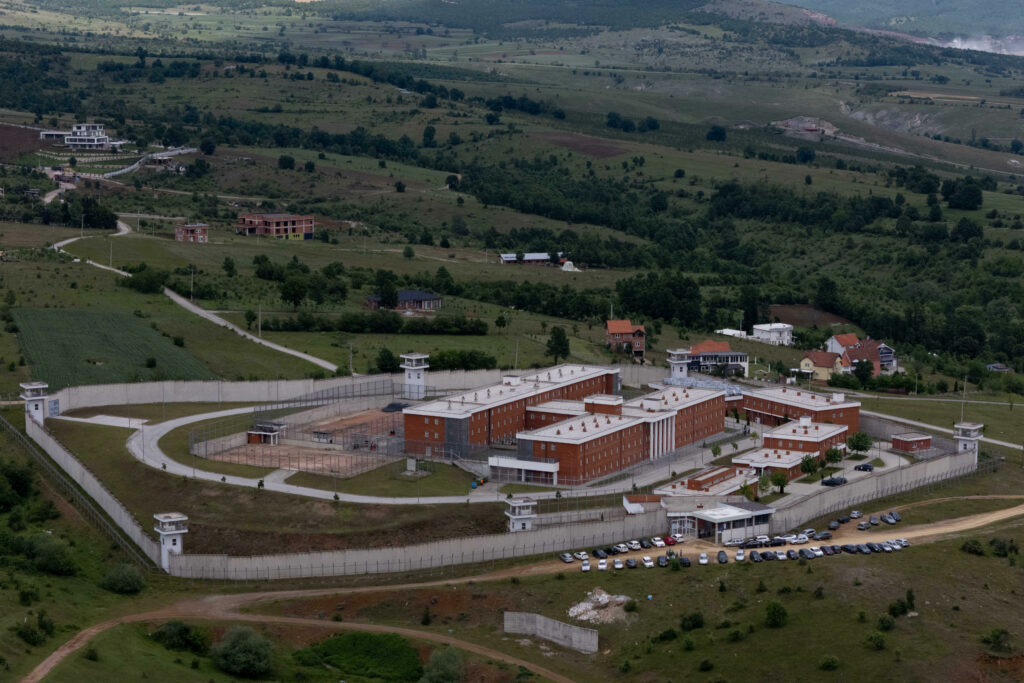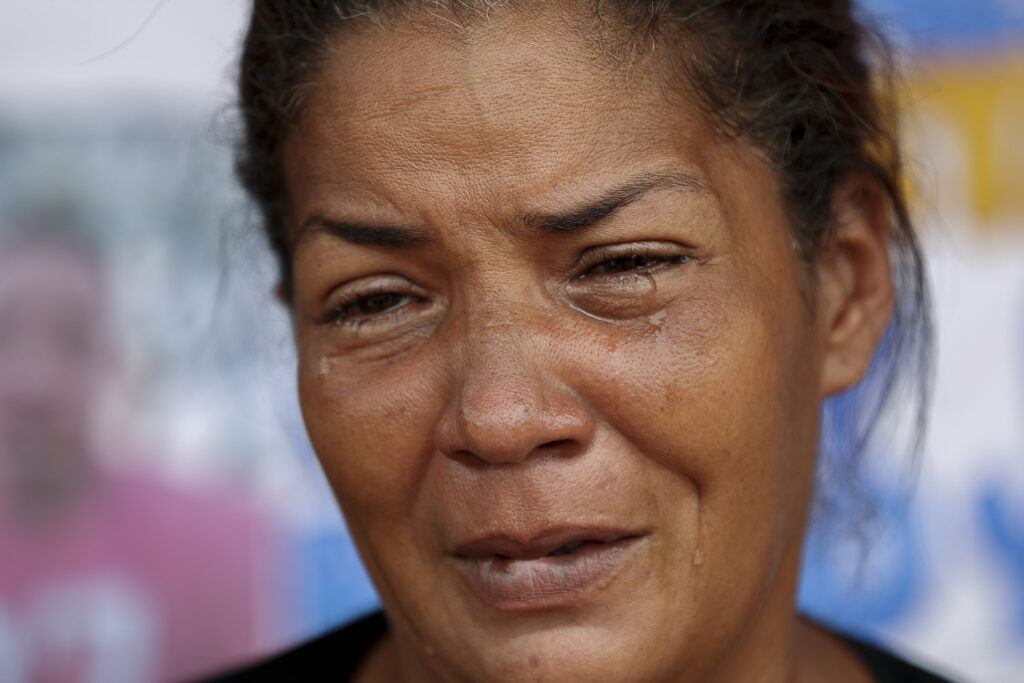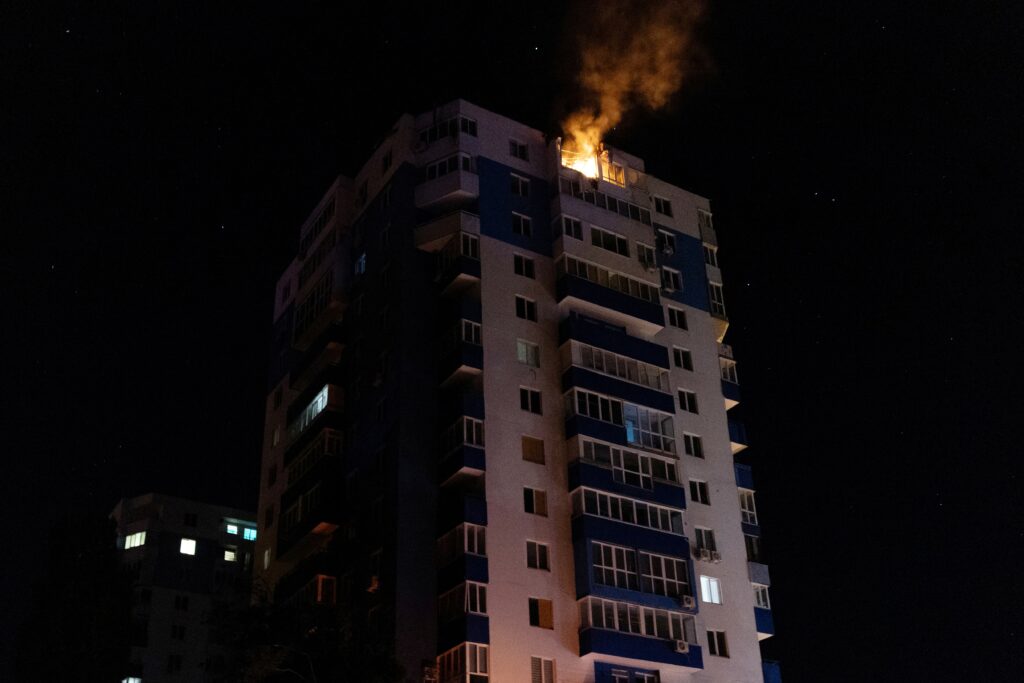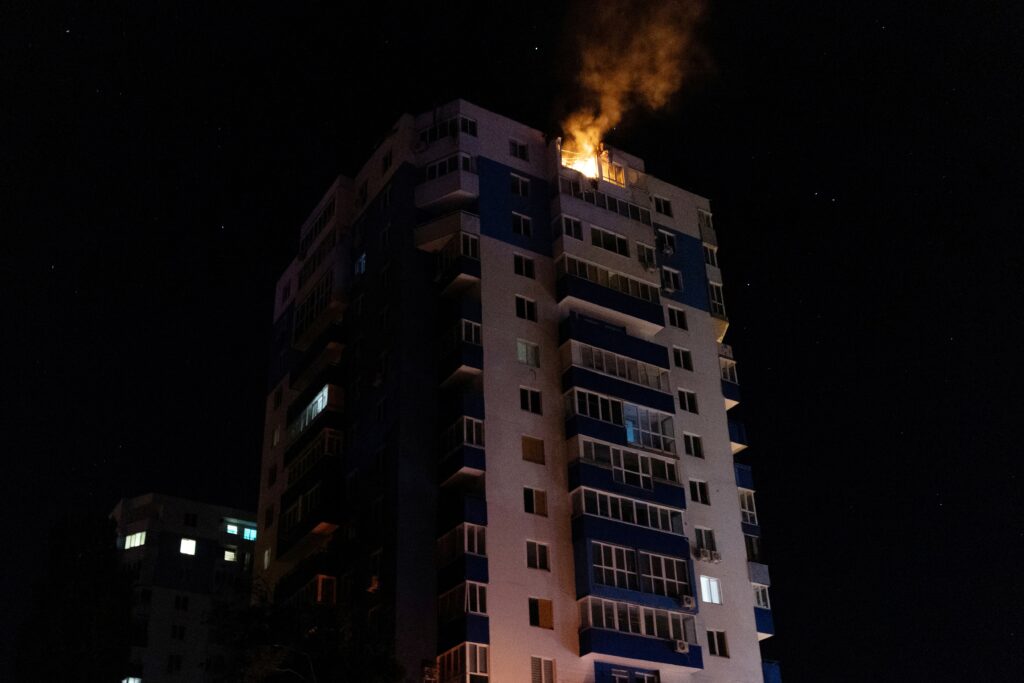Brésil: des anciens ministres critiquent une loi assouplissant les règles environnementales
Sept anciens ministres de l’Environnement du Brésil ont publié jeudi une lettre ouverte critiquant un projet de loi controversé visant à assouplir les règles pour l’obtention de licences environnementales.Déjà approuvé au Sénat, ce projet de loi doit être débattu prochainement à la Chambre des députés, alors que le pays sud-américain s’apprête à accueillir en novembre la conférence de l’ONU sur le climat COP30 dans la ville amazonienne de Belem. Ce sujet est d’autant plus sensible que la compagnie pétrolière publique Petrobras est dans l’attente d’une licence de l’organe de surveillance environnementale Ibama pour un méga-projet d’exploration pétrolière près de l’embouchure de l’Amazone. Ce projet critiqué par les écologistes a été défendu ouvertement par le président de gauche Luiz Inacio Lula da Silva.”Ce que propose ce projet de loi est très grave (…)”, à savoir “beaucoup moins d’études et de mécanismes pour la réduction des impacts” environnementaux, notamment sur des projets d’infrastructures, dénoncent les anciens ministres de gauche ou de centre-droit dans cette lettre ouverte diffusée dans plusieurs médias à l’occasion de la Journée mondiale de l’Environnement.Ils ont également fustigé la possibilité de création de règles exceptionnelles pour des projets considérés comme d’importance stratégique par les gouvernements, pour lesquels “les licences seraient octroyées sur des critères plus politiques que techniques”. Mardi, Lula a affirmé en conférence de presse qu’il n’avait “pas connaissance des règles” proposées dans le projet de loi. Les défenseurs du texte argumentent qu’il permet de moderniser et de simplifier des normes bureaucratiques obsolètes. Un argument rejeté par les défenseurs de l’environnement. Jeudi, plusieurs centaines de femmes membres de mouvements écologiques ont pris part à une manifestation contre ce projet de loi devant le Parlement à Brasilia, portant un grand globe terrestre gonflable.”Approuver cette loi, c’est un crime: cela va faciliter l’obtention de licences par l’agro-négoce, les constructeurs de barrages hydroélectriques ou les opérations minières, et cela va porter encore plus de tort à la population”, a déclaré à l’AFP Ivanei Farina Dalla, une des manifestantes.
Brésil: des anciens ministres critiquent une loi assouplissant les règles environnementales
Sept anciens ministres de l’Environnement du Brésil ont publié jeudi une lettre ouverte critiquant un projet de loi controversé visant à assouplir les règles pour l’obtention de licences environnementales.Déjà approuvé au Sénat, ce projet de loi doit être débattu prochainement à la Chambre des députés, alors que le pays sud-américain s’apprête à accueillir en novembre la conférence de l’ONU sur le climat COP30 dans la ville amazonienne de Belem. Ce sujet est d’autant plus sensible que la compagnie pétrolière publique Petrobras est dans l’attente d’une licence de l’organe de surveillance environnementale Ibama pour un méga-projet d’exploration pétrolière près de l’embouchure de l’Amazone. Ce projet critiqué par les écologistes a été défendu ouvertement par le président de gauche Luiz Inacio Lula da Silva.”Ce que propose ce projet de loi est très grave (…)”, à savoir “beaucoup moins d’études et de mécanismes pour la réduction des impacts” environnementaux, notamment sur des projets d’infrastructures, dénoncent les anciens ministres de gauche ou de centre-droit dans cette lettre ouverte diffusée dans plusieurs médias à l’occasion de la Journée mondiale de l’Environnement.Ils ont également fustigé la possibilité de création de règles exceptionnelles pour des projets considérés comme d’importance stratégique par les gouvernements, pour lesquels “les licences seraient octroyées sur des critères plus politiques que techniques”. Mardi, Lula a affirmé en conférence de presse qu’il n’avait “pas connaissance des règles” proposées dans le projet de loi. Les défenseurs du texte argumentent qu’il permet de moderniser et de simplifier des normes bureaucratiques obsolètes. Un argument rejeté par les défenseurs de l’environnement. Jeudi, plusieurs centaines de femmes membres de mouvements écologiques ont pris part à une manifestation contre ce projet de loi devant le Parlement à Brasilia, portant un grand globe terrestre gonflable.”Approuver cette loi, c’est un crime: cela va faciliter l’obtention de licences par l’agro-négoce, les constructeurs de barrages hydroélectriques ou les opérations minières, et cela va porter encore plus de tort à la population”, a déclaré à l’AFP Ivanei Farina Dalla, une des manifestantes.
Le Kosovo se prépare à recevoir les prisonniers étrangers du Danemark
D’ici à 2027, le Danemark délocalisera ses prisonniers étrangers dans un centre de détention au Kosovo, en vertu d’un accord qui inquiète des ONG, la population et les gardiens mais qui pourrait servir de modèle à d’autres pays européens.L’accord conclu en 2022 et ratifié par les députés kosovars en 2024 prévoit l’accueil de jusqu’à 300 prisonniers condamnés au Danemark de nationalité étrangère. Aucun d’entre eux ne doit avoir été condamné pour terrorisme ou crime de guerre, ni souffrir de maladie mentale ou d’une maladie incurable et, une fois leur peine purgée au Kosovo, ils seront envoyés dans leur pays d’origine.En échange, le Danemark versera 200 millions d’euros – plus de six fois le budget annuel du ministère de la Justice du Kosovo. – La population perplexe -Les détenus seront emprisonnés dans un établissement qui leur sera entièrement dédié, dans les environs de Pasjak, à une cinquantaine de kilomètres au sud de la capitale, Pristina, où les travaux doivent commencer rapidement.De la route principale, le chemin étroit qui mène au centre de détention divise le village en deux, laissant environ 1.500 de ses habitants d’un côté, tandis que l’école, la mosquée et le cimetière se trouvent de l’autre, près de la prison elle-même entourée de barbelés et de postes d’observation en hauteur. Le projet laisse la population locale perplexe.”Nous ne savons pas qui ils amèneront, ni s’ils constitueront une menace pour le village”, se demande Zeke Zeka, un agriculteur de 57 ans qui occupe le poste de maire. “S’ils étaient bons, le Danemark les garderait et ne les transférerait pas” hors de son territoire, pense-t-il.Tout en accrochant son linge dans la cour, sa femme, Hasime, 57 ans, regrette d’avoir une prison quasiment devant sa porte mais reconnaît ne “rien y pouvoir”. “On ne nous a pas demandé (notre avis)”.Le doute a gagné l’intérieur même de cet établissement, où les gardiens se sentent victimes de discriminations.”Nous continuerons à travailler pour le même salaire mais sous un régime danois, donc plus exigeant et dont les normes sont parmi les plus strictes en Europe”, explique l’un d’eux à l’AFP au cours d’une visite de la prison – préférant taire son nom. – Couture -L’accord stipule en effet que le Kosovo “doit apporter les ajustements nécessaires aux installations pénitentiaires pour garantir qu’elles répondent aux exigences de l’État envoyeur”, le Danemark, note Ismaïl Dibrani, le directeur des services pénitentiaires du Kosovo.”Bien sûr, l’aménagement sera adapté au système pénitentiaire danois”, ajoute M. Dibrani, précisant qu’il y aura “des ateliers où les prisonniers pourront travailler dans l’impression, la couture, le design, etc.”Côté danois, le gouvernement a nommé en avril un haut fonctionnaire, Mads Beyer, pour codiriger la prison, en coopération avec les autorités locales. Son travail, confirme-t-il à l’AFP, sera “de s’assurer que les prisonniers purgent leur peine conformément aux règles danoises et dans des conditions comparables à celles qui s’appliquent dans les prisons danoises”.Si le comité contre la torture de l’ONU s’est inquiété de ce projet, tout comme le Comité européen pour la prévention de la torture et des peines ou traitements inhumains ou dégradants, ou encore plusieurs ONG, l’exemple kosovar intéresse beaucoup en Europe.La délocalisation des prisonniers est un sujet qui n’est “pas tabou” a récemment déclaré le président français Emmanuel Macron et la Suède a annoncé mardi son intention de louer des places de prison en Estonie.”Contrairement à la majorité des États européens qui sont confrontés à la surpopulation carcérale, nous avons des capacités suffisantes”, insiste M. Dibrani. “La capacité de nos prisons est aujourd’hui de 2.800 places, alors que nous avons actuellement environ 1.800 prisonniers”.De quoi monnayer d’autres cellules ? “Après la signature de l’accord, nous avons reçu de nombreuses demandes de la part de pays européens, contre des sommes faramineuses. Mais nous n’en avons pas encore discuté”, ajoute-t-il. “Nous avons déjà beaucoup de travail à faire pour notre propre pays.”
Au Sahel, un regain des violences jihadistes qui inquiète
Raids sanglants au Mali, incursions dans de grandes villes au Burkina, lourdes pertes militaires au Niger: les jihadistes ont intensifié ces dernières semaines leurs offensives contre les armées au Sahel.Les dernières semaines ont été particulièrement meurtrières, avec plusieurs centaines de soldats tués dans diverses attaques revendiquées au Mali et au Burkina par le Groupe de Soutien à l’Islam et aux musulmans (JNIM, de son acronyme en arabe), affilié à Al-Qaïda, et au Niger par l’Etat islamique au Sahel (EIS).Les juntes des trois pays, qui avaient promis lors de leurs putschs de faire du retour de la sécurité une priorité, peinent à endiguer la progression des jihadistes, qui menacent plus que jamais le nord de certains pays côtiers du Golfe de Guinée.Pourquoi cette intensification des attaques ?”La vision globale du terrorisme régional est modifiée. Il y a une question idéologique mais aussi une question liée à l’ethnicité. Des chefs jihadistes ont affirmé en mars vouloir accélérer les attaques contre les armées nationales pour empêcher un génocide de la communauté peule”, explique Lassina Diarra, directeur de l’Institut de recherche stratégique à l’Académie internationale de lutte contre le terrorisme de Jacqueville (Côte d’Ivoire).Les exactions des armées à l’encontre de civils – en particulier les Peuls, accusés de nourrir les rangs des jihadistes et souvent pris pour cible au Sahel – “exacerbent les ressentiments et favorisent l’expansion du JNIM”, confirme le groupe de réflexion Soufan Center, dans une note qui pointe “une stratégie globale visant à dégrader la confiance du public envers les forces de l’État”.”Il y a aussi une question de compétition du contrôle de l’espace. Le JNIM accélère les attaques pour réduire l’influence de l’EIS qui revient sur le devant de la scène”, explique à l’AFP M. Diarra.Quelles sont les ambitions des jihadistes ?Les objectifs du JNIM et de l’EIS sont différents.”L’EIS est dans un jihad global, avec la volonté d’instaurer d’un califat, l’application stricte de la charia, avec des approches brutales y compris contre les populations civiles. Le JNIM a une approche plus politique”, explique M. Diarra.Jusqu’à pouvoir prendre une capitale, voire de renverser un régime? “C’est une stratégie de conquête territoriale qui précède la prise de pouvoir dans une capitale. Et cette fois, il n’y aura pas d’intervention étrangère pour sauver l’Afrique”, s’inquiète un chercheur mauritanien. “Bamako et Ouagadougou sont ceinturées. Vu la montée en puissance de ses capacités opérationnelles, le JNIM a la possibilité d’occuper une capitale, l’enjeu ce sera de l’administrer. Pas sûr qu’il dispose des moyens et de l’expertise en la matière”, estime M. Diarra.”Il faut se méfier des scénarios catastrophe. Cela reste difficile pour des groupes armés dont l’avantage principal est leur mobilité et leur capacité à bouger, à se mélanger aux populations”, tempère Gilles Yabi, fondateur du groupe de réflexion ouest-africain Wathi.Selon une source militaire occidentale, “on ne peut pas écarter un scénario à la somalienne, au Burkina Faso, avec une capitale qui résiste et le reste du pays qui est hors de contrôle”, affirme une source militaire occidentale.Quelle est la réponse des Etats sahéliens ?Les juntes arrivées au pouvoir par des coups d’Etat dans les trois pays entre 2020 et 2023 sont désormais réunies dans une confédération, l’Alliance des Etats du Sahel (AES) et ont tourné le dos au bloc ouest-africain de la Cedeao et aux puissances occidentales engagées dans la lutte antijihadiste.Les trois régimes communiquent rarement sur les attaques et assurent au contraire reconquérir de larges pans du territoire.”Ce qui est préoccupant et ce qui déstabilise beaucoup les militaires, c’est l’utilisation par les groupes armés de drones, qui peut réduire voire annihiler l’avantage que les armées semblaient avoir pris ces derniers mois”, avance Gilles Yabi. L’AES a annoncé en début d’année la formation d’une force conjointe de 5.000 hommes, et ses trois armées mènent des opérations ensemble. “On ne peut pas dire qu’il n’y a pas du tout de résultats mais ils perdent beaucoup d’hommes, et c’est probablement en train de créer une inquiétude en termes de mobilisation des soldats”, affirme M. Yabi.”Il y a un cocktail de facteurs: des pouvoirs pas très solides, des trafics en tout genres, une explosion démographique, de la désinformation sur les réseaux sociaux, le retrait de l’aide américaine”, explique la source militaire occidentale, qui craint un effondrement de la région.La menace peut-elle descendre sur les pays côtiers ?Les parties nord du Togo et du Bénin frontalières des pays sahéliens sont déjà régulièrement les cibles d’incursions violentes de jihadistes. Le Bénin a des relations tendues avec ses deux voisins, le Burkina et le Niger, qui l’accusent d’abriter des bases d’entraînement de jihadistes, ce que Cotonou nie. “Le fait que le Bénin n’arrive pas à parler directement avec ses voisins et a donc du mal à sécuriser ses frontières renforce son état de vulnérabilité”, souligne M. Diarra. Le JNIM cherche également à s’implanter au Sénégal et en Mauritanie, depuis le Mali, selon une étude du Timbuktu Institute, un centre d’études basé à Dakar. Une menace prise au sérieux par le Premier ministre sénégalais Ousmane Sonko qui lors d’une visite à Ouagadougou en mai avait estimé qu’il était “illusoire” de penser que le jihadisme resterait cantonné au Sahel.
“Un cauchemar”: une famille vénézuélienne déchirée par la politique de Trump
L’un a été emprisonné au Salvador, un autre est rentré au pays et le dernier vit reclus, de peur d’être arrêté: la politique anti-immigration de Donald Trump a déchiré la famille de Mercedes Yamarte, dont les trois fils avaient émigré aux Etats-Unis depuis le Venezuela.”Je voudrais m’endormir, me réveiller et que tout cela ne soit jamais arrivé”, dit en pleurant cette femme de 46 ans. La pluie s’intensifie sur le toit de zinc de sa petite maison emplie de tristesse dans un quartier de Maracaibo, à neuf heures de route de Caracas, où l’argent du pétrole n’est jamais arrivé.Sur son téléphone, elle montre une photo de ses enfants, prise lors d’un appel vidéo pour Noël dernier.Son aîné, Mervin José Yamarte Fernández, 30 ans, a été arrêté au Texas le 13 mars avant d’être expulsé au Salvador et emprisonné dans une mégaprison pour membres de gangs.Marié et père d’une petite fille de six ans, il fait partie des 252 Vénézuéliens envoyés le 15 mars dans ce pays d’Amérique centrale sur la base d’une loi de 1798 sur les ennemis étrangers, jusqu’alors uniquement utilisée en temps de guerre.Expulsés sans autre forme de procès, la plupart sont accusés d’appartenir au gang Tren de Aragua.Une affiliation contestée par des avocats et des militants des droits de l’Homme. Ils affirment que nombre d’entre eux ont été arrêtés à cause de leurs tatouages, qui n’ont rien à voir avec l’organisation classée “terroriste” par Washington.Mervin, qui travaillait au Texas dans un restaurant de tortillas et dans la construction, porte un tatouage sur la main gauche avec le numéro 99. Celui de son maillot de football. Il s’est également fait tatouer le nom de sa mère et de sa fille.- “Plus seul que jamais” -Il est arrivé aux Etats-Unis en 2023 dans l’espoir de trouver du travail pour envoyer de l’argent à sa mère et à son épouse.Il a fait le voyage avec son frère Jonferson, 21 ans, traversant à pied la jungle du Darién – entre la Colombie et le Panama – puis le Mexique. Leur frère Juan et leur soeur Francis, 28 et 19 ans, ont tenté de les rejoindre un an plus tard mais seul le premier est arrivé aux Etats-Unis, Francis ayant fait demi-tour au Mexique.Jonferson a depuis quitté le pays, de peur de subir le même sort que son frère aîné.Il a attendu un mois au Mexique avant de pouvoir regagner le Venezuela à bord d’un vol humanitaire affrété par Caracas.”Ça a été un cauchemar”, affirme Jonferson, qui a fait face à de nombreuses privations et a dû demander à sa mère de lui envoyer de l’argent.”Je me sens plus seul que jamais”, explique-t-il par téléphone à l’AFP, du bus qui le conduit à l’aéroport pour prendre son vol pour le Venezuela.Des trois frères, Juan est le seul qui se trouve encore aux Etats-Unis.Il vit caché, se déplaçant régulièrement d’un endroit à un autre pour éviter d’être arrêté. “Je reste enfermé. Quand je vais à l’épicerie, je regarde de tous les côtés, apeuré, comme si quelqu’un me poursuivait”, raconte à l’AFP le jeune homme, qui ne souhaite pas montrer son visage à la caméra et demande à ce que son lieu de résidence ne soit pas révélé. Juan, qui continue de travailler dans la construction, refuse de retourner dans son pays “les mains vides”. Il est le seul qui puisse désormais aider sa mère, ainsi que sa femme et son fils de sept ans qui l’attendent au Venezuela.Penser à sa famille le tourmente.C’est “une douleur qui est difficile (…) d’avoir un être cher dans une mégaprison en étant innocent”, dit-il en référence à son frère, Mervin.”Ma mère est dévastée, elle n’a pas dormi depuis des jours” et “ma belle-sœur pleure aussi tous les jours”, ajoute-t-il.- “Terrifiant” -Près de huit millions de Vénézuéliens ont quitté leur pays au cours de la dernière décennie, poussés par la crise, selon les Nations unies.A leur arrivée aux Etats-Unis, Mervin, Jonferson et Juan ont déposé une demande d’asile qui les autorisait à y rester jusqu’à ce qu’un juge décide de leur sort.Ce statut protecteur n’a pas empêché les autorités américaines d’arrêter et d’expulser des migrants qui en bénéficiaient, selon des avocats et des militants.À l’aube du 13 mars, des agents de la police de l’immigration frappent à la porte de l’appartement d’Irving, au Texas, où vivent les trois frères Yamarte avec des amis de leur quartier de Maracaibo, au Venezuela. Ils disent disposer d’un mandat d’arrêt contre l’un d’eux.Mais lorsqu’ils aperçoivent Mervin, ils lui lancent: “Toi aussi tu viens avec nous, pour des vérifications”, raconte Juan.L’un des agents affirme que l’aîné des Yamarte est également visé par un mandat d’arrêt. Mervin répond qu’il s’agit d’une erreur et propose de montrer ses papiers. “Mais ils l’avaient déjà menotté pour l’emmener”, relate Juan. Au total, quatre Vénézuéliens sont arrêtés ce jour-là.Transféré dans un centre de détention au Texas, Mervin parvient à appeler Jonferson, son frère cadet.Il ne sait pas où il sera envoyé ensuite et dit avoir été “trompé”: on lui a fait signer des papiers qu’il ne comprend pas.Trois jours plus tard, Jonferson tombe sur les images de l’arrivée des migrants vénézuéliens au Salvador, diffusées par le président Nayib Bukele.Mervin apparaît sur l’une d’elles, agenouillé, la tête rasée et le regard dans le vague.Jonferson se met à pleurer. Il prévient sa mère, qui a également reconnu Mervin sur les images.Il “regardait comme vers le ciel l’air de dire +Où suis-je, qu’ai-je fait pour être ici?+ (…) C’est le regard le plus terrifiant que j’ai vu dans les yeux de mon fils”, se souvient Mercedes, qui a depuis retrouvé Jonferson.A son retour, elle l’a accueilli dans sa maison avec une pancarte “Bienvenue” accompagnée de ballons aux couleurs du drapeau vénézuélien. “J’aimerais être joyeuse comme il le faudrait, mais mon autre fils est au Salvador, je ne sais pas dans quelles conditions”, confesse Mercedes. Jonferson se dit quant à lui “reconnaissant”, malgré la souffrance. Le visage de sa mère s’illumine brièvement, elle le serre dans ses bras comme si elle voulait le garder près d’elle pour toujours. x”J’ai très peur”, dit-elle. “Je n’aurais jamais pensé que l’absence de mes enfants me toucherait autant, je n’avais jamais imaginé une telle douleur.”
La Russie bombarde massivement l’Ukraine, au moins quatre morts à Kiev
La Russie a massivement bombardé l’Ukraine avec des drones et des missiles balistiques dans la nuit de jeudi à vendredi, faisant au moins quatre morts dans la capitale Kiev, quelques jours après l’attaque spectaculaire contre des aérodromes militaires russes.Alors que le Kremlin avait laissé entendre qu’il préparait une riposte, des alertes aériennes ont été déclenchées dans la nuit sur tout le territoire ukrainien et plusieurs régions ont fait état de multiples frappes notamment dans l’ouest, loin de la ligne de front.”Quatre personnes sont confirmées mortes dans la capitale”, a déclaré le maire Vitali Klitschko sur Telegram, après avoir évoqué un bilan d’un mort et 20 blessés dont 16 hospitalisés.Les services d’urgence avaient indiqué auparavant que Kiev avait été la cible d’une “attaque impliquant des drones et missiles balistiques” touchant plusieurs quartiers de la ville.Parmi les dégâts signalés à la suite d’explosions et de chutes de débris, un incendie a éclaté dans un immeuble résidentiel, a précisé la même source.Selon les autorités civiles et militaires de la ville, des voies de métro ont été endommagées par les bombardements russes.La compagnie ferroviaire nationale a fait de son côté état de dégâts sur les rails dans la région, affectant le trafic des trains desservant la périphérie sud de Kiev. Hors de la capitale, plusieurs régions ont fait état d’importants bombardements russes.A Loutsk (ouest), non loin de la frontière polonaise, “une attaque massive de missiles et drones” a “partiellement détruit” un immeuble résidentiel, faisant cinq blessés, selon le chef de l’administration militaire régionale Ivan Rudnytsky sur Telegram. Egalement à l’ouest, la région de Ternopil a subi “l’attaque aérienne la plus massive à ce jour”, avec “de multiples frappes” selon Viatcheslav Negoda, chef de l’administration militaire régionale. Il a fait état plus tard d’un bilan de cinq blessés.”Des installations industrielles et des infrastructures ont été touchées”, a indiqué le maire de Ternopil, Serguiï Nadal. “Certaines parties de Ternopil sont sans électricité et la pression de distribution de l’eau a été réduite en raison des coupures de courant”. Au centre du pays, au bord du fleuve Dniepr, “trois missiles russes ont été abattus sur notre territoire et 22 drones”, a déclaré le gouverneur de la région de Tcherkassy, Igor Taburets, précisant que les frappes n’avaient pas fait de victimes.- Accidents de trains -En Russie, le maire de Moscou Sergueï Sobianine a indiqué que la capitale avait été ciblée par 10 drones ukrainiens dans la nuit.Trois aéroports desservant Moscou ont été fermés provisoirement, selon l’agence chargée du transport aérien, qui a ensuite levé les restrictions.Malgré les appels de l’Ukraine et des Occidentaux au cessez-le-feu immédiat et la pression exercée par Donald Trump pour engager des pourparlers et mettre fin au conflit, les combats ne montrent aucun signe d’apaisement, plus de trois ans après le lancement de l’offensive militaire russe à grande échelle.La Russie contrôle à l’heure actuelle environ 20% de ce pays voisin, dont la Crimée, péninsule annexée en 2014.A l’issue d’un appel avec Vladimir Poutine mercredi, le président américain avait prévenu que Moscou comptait riposter à l’attaque audacieuse lancée le week-end dernier par l’Ukraine contre des bombardiers russes, jusqu’à des milliers de kilomètres de ses frontières.Moscou a également accusé mardi Kiev d’être à l’origine des explosions ayant provoqué le week-end dernier l’effondrement de deux ponts et des accidents de trains qui ont fait sept morts et plus de cent blessés, dont des enfants, dans les régions russes de Koursk et de Briansk, frontalières de l’Ukraine.Dans la nuit de jeudi à vendredi, une locomotive a déraillé dans la région russe de Belgorod, frontalière de l’Ukraine, sans faire de victime, a indiqué la compagnie russe de chemin de fer. Le gouverneur de la région, Viatcheslav Gladkov, a précisé qu’un “engin explosif avait été placé sous les rails”, sur Telegram.Sur le plan diplomatique, deux cycles de négociations menées à Istanbul entre Kiev et Moscou sur une trêve, encouragée par Washington, n’ont pas permis de rapprocher les positions.Au cours de la deuxième réunion, lundi sous médiation turque, la délégation russe a remis à Kiev une liste de demandes comprenant notamment le retrait de ses forces de quatre régions dont Moscou revendique l’annexion, la renonciation de l’Ukraine à intégrer l’Otan et la limitation de la taille de son armée.Des conditions qualifiées mercredi par Volodymyr Zelensky d'”ultimatums” inacceptables.Seul résultat de ces discussions: Russes et Ukrainiens doivent procéder ce week-end à un nouvel échange de 500 prisonniers de guerre de chaque camp, après un précédent échange de 1.000 personnes de chaque côté en mai. Kiev et Moscou sont en outre convenus de remettre les corps de milliers de militaires tués.En visite à Washington jeudi, le chancelier allemand Friedrich Merz a plaidé auprès de Donald Trump pour “accroître la pression sur la Russie” pour l’amener à mettre fin à la guerre.
La Russie bombarde massivement l’Ukraine, au moins quatre morts à Kiev
La Russie a massivement bombardé l’Ukraine avec des drones et des missiles balistiques dans la nuit de jeudi à vendredi, faisant au moins quatre morts dans la capitale Kiev, quelques jours après l’attaque spectaculaire contre des aérodromes militaires russes.Alors que le Kremlin avait laissé entendre qu’il préparait une riposte, des alertes aériennes ont été déclenchées dans la nuit sur tout le territoire ukrainien et plusieurs régions ont fait état de multiples frappes notamment dans l’ouest, loin de la ligne de front.”Quatre personnes sont confirmées mortes dans la capitale”, a déclaré le maire Vitali Klitschko sur Telegram, après avoir évoqué un bilan d’un mort et 20 blessés dont 16 hospitalisés.Les services d’urgence avaient indiqué auparavant que Kiev avait été la cible d’une “attaque impliquant des drones et missiles balistiques” touchant plusieurs quartiers de la ville.Parmi les dégâts signalés à la suite d’explosions et de chutes de débris, un incendie a éclaté dans un immeuble résidentiel, a précisé la même source.Selon les autorités civiles et militaires de la ville, des voies de métro ont été endommagées par les bombardements russes.La compagnie ferroviaire nationale a fait de son côté état de dégâts sur les rails dans la région, affectant le trafic des trains desservant la périphérie sud de Kiev. Hors de la capitale, plusieurs régions ont fait état d’importants bombardements russes.A Loutsk (ouest), non loin de la frontière polonaise, “une attaque massive de missiles et drones” a “partiellement détruit” un immeuble résidentiel, faisant cinq blessés, selon le chef de l’administration militaire régionale Ivan Rudnytsky sur Telegram. Egalement à l’ouest, la région de Ternopil a subi “l’attaque aérienne la plus massive à ce jour”, avec “de multiples frappes” selon Viatcheslav Negoda, chef de l’administration militaire régionale. Il a fait état plus tard d’un bilan de cinq blessés.”Des installations industrielles et des infrastructures ont été touchées”, a indiqué le maire de Ternopil, Serguiï Nadal. “Certaines parties de Ternopil sont sans électricité et la pression de distribution de l’eau a été réduite en raison des coupures de courant”. Au centre du pays, au bord du fleuve Dniepr, “trois missiles russes ont été abattus sur notre territoire et 22 drones”, a déclaré le gouverneur de la région de Tcherkassy, Igor Taburets, précisant que les frappes n’avaient pas fait de victimes.- Accidents de trains -En Russie, le maire de Moscou Sergueï Sobianine a indiqué que la capitale avait été ciblée par 10 drones ukrainiens dans la nuit.Trois aéroports desservant Moscou ont été fermés provisoirement, selon l’agence chargée du transport aérien, qui a ensuite levé les restrictions.Malgré les appels de l’Ukraine et des Occidentaux au cessez-le-feu immédiat et la pression exercée par Donald Trump pour engager des pourparlers et mettre fin au conflit, les combats ne montrent aucun signe d’apaisement, plus de trois ans après le lancement de l’offensive militaire russe à grande échelle.La Russie contrôle à l’heure actuelle environ 20% de ce pays voisin, dont la Crimée, péninsule annexée en 2014.A l’issue d’un appel avec Vladimir Poutine mercredi, le président américain avait prévenu que Moscou comptait riposter à l’attaque audacieuse lancée le week-end dernier par l’Ukraine contre des bombardiers russes, jusqu’à des milliers de kilomètres de ses frontières.Moscou a également accusé mardi Kiev d’être à l’origine des explosions ayant provoqué le week-end dernier l’effondrement de deux ponts et des accidents de trains qui ont fait sept morts et plus de cent blessés, dont des enfants, dans les régions russes de Koursk et de Briansk, frontalières de l’Ukraine.Dans la nuit de jeudi à vendredi, une locomotive a déraillé dans la région russe de Belgorod, frontalière de l’Ukraine, sans faire de victime, a indiqué la compagnie russe de chemin de fer. Le gouverneur de la région, Viatcheslav Gladkov, a précisé qu’un “engin explosif avait été placé sous les rails”, sur Telegram.Sur le plan diplomatique, deux cycles de négociations menées à Istanbul entre Kiev et Moscou sur une trêve, encouragée par Washington, n’ont pas permis de rapprocher les positions.Au cours de la deuxième réunion, lundi sous médiation turque, la délégation russe a remis à Kiev une liste de demandes comprenant notamment le retrait de ses forces de quatre régions dont Moscou revendique l’annexion, la renonciation de l’Ukraine à intégrer l’Otan et la limitation de la taille de son armée.Des conditions qualifiées mercredi par Volodymyr Zelensky d'”ultimatums” inacceptables.Seul résultat de ces discussions: Russes et Ukrainiens doivent procéder ce week-end à un nouvel échange de 500 prisonniers de guerre de chaque camp, après un précédent échange de 1.000 personnes de chaque côté en mai. Kiev et Moscou sont en outre convenus de remettre les corps de milliers de militaires tués.En visite à Washington jeudi, le chancelier allemand Friedrich Merz a plaidé auprès de Donald Trump pour “accroître la pression sur la Russie” pour l’amener à mettre fin à la guerre.
Surging jihadist violence in Sahel fuels fears unrest may spreadFri, 06 Jun 2025 05:30:33 GMT
Jihadists have intensified their offensives in the Sahel region in recent weeks, carrying out bloody raids in Mali, incursions into major cities in Burkina Faso and inflicting heavy army losses in Niger.The three Sahel states’ military juntas, who had pledged during the coups that brought them to power to make security a priority, are struggling …







